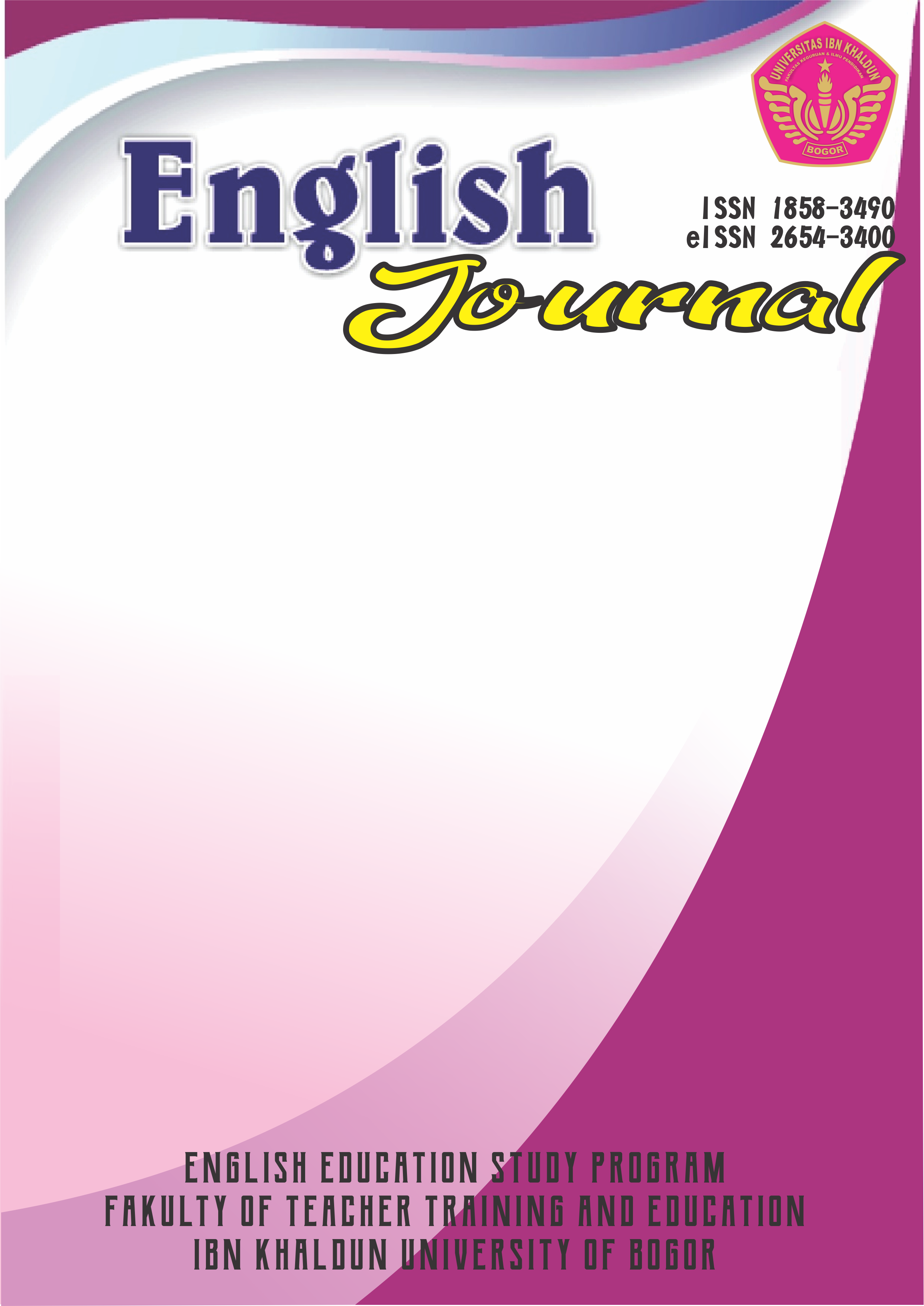BENEFITTING HIGHER EDUCATION STUDENTS WITH DIGITAL GAMES IN LANGUAGE LEARNING
DOI:
https://doi.org/10.32832/english.v14i2.3843Abstrak
There has been an abundant raise in recent years in the concern in using digital games for language learning. Additionally, gaming plays an important role in the everyday lives of youngsters and young adults in developed countries. It is a considerable option for teacher to adapt gaming into language learning since gaming itself became a habit that will easily be adopted into learning. This study will examine gaming opportunities in language learning, and how higher education students benefitting from that. It will employ quantitative research that uses Structured Interview and Online Questionnaire as research Instruments. By the end of the study, higher education students found out that digital game is an easy media to implement in language learning due to their familiarity to digital games. The implementation of digital games excites the students in learning English, and makes a conducive learning situation.Referensi
Alyaz, Y., & Genc, Z. S. (2016). Digital game-based language learning in foreign language teacher education. Turkish Online Journal of Distance Education, 17(4), 130-146.
Becker, K. (2017). Choosing and using digital games in the classroom (pp. 175-214). Springer.
Denisova, A., Guckelsberger, C., & Zendle, D. (2017, May). Challenge in digital games: Towards developing a measurement tool. In Proceedings of the 2017 chi conference extended abstracts on human factors in computing systems (pp. 2511-2519).
Elmezeny, A., & Wimmer, J. (2018). Games without frontiers: A framework for analyzing digital game cultures comparatively. Media and Communication, 6(2), 80-89.
Hammar, E. L. (2019). Manufacturing Consent in Video Games”The Hegemonic Memory Politics of Metal Gear Solid V: The Phantom Pain (2015). Nordlit, (42), 279-300.
Lindgren, S. (2017). Digital media and society. Sage.
Lorenset, C. C. (2019). Foreign language acquisition and digital games playing: a focus on vocabulary development.
Newcombe, J., & Brick, B. (2017). Blending video games into language learning. International Journal of Computer-Assisted Language Learning and Teaching (IJCALLT), 7(4), 75-89.
Notargiacomo, P., Cabrini, F., Ohata, D., Martins, R., Brancaccio, R., & Marin, R. (2019). The Uses of Games That Transcend the Play and Mediate Learning. In Handbook of Research on Immersive Digital Games in Educational Environments (pp. 131-166). IGI Global.
Reinhardt, J., & Thorne, S. (2016). Metaphors for digital games and language learning. The Routledge handbook of language learning and technology, 415-430.
Sykes, J. M. (2018). Digital games and language teaching and learning. Foreign Language Annals, 51(1), 219-224.
Wichadee, S., & Pattanapichet, F. (2018). Enhancement of performance and motivation through application of digital games in an English language class. Teaching English with Technology, 18(1), 77-92.
Wu, L. F. (2017). Games-Based Language Learning with Creative Teaching Aids among Technical College Students. World Journal of Research and Review, 5(6).

















1.png)




